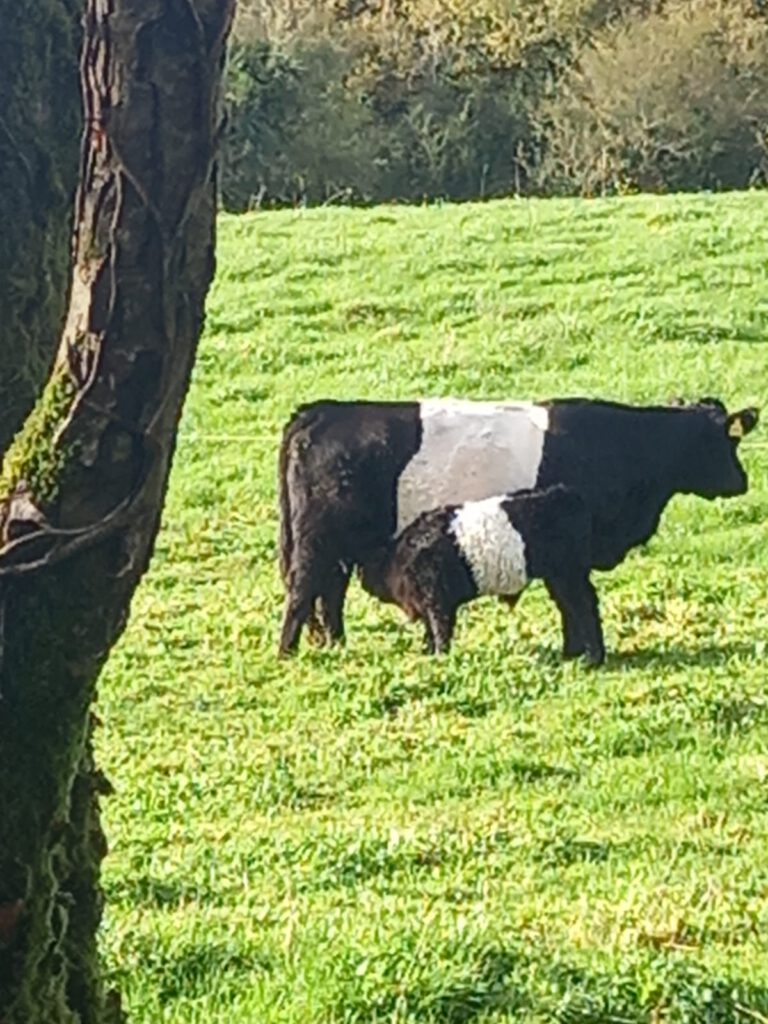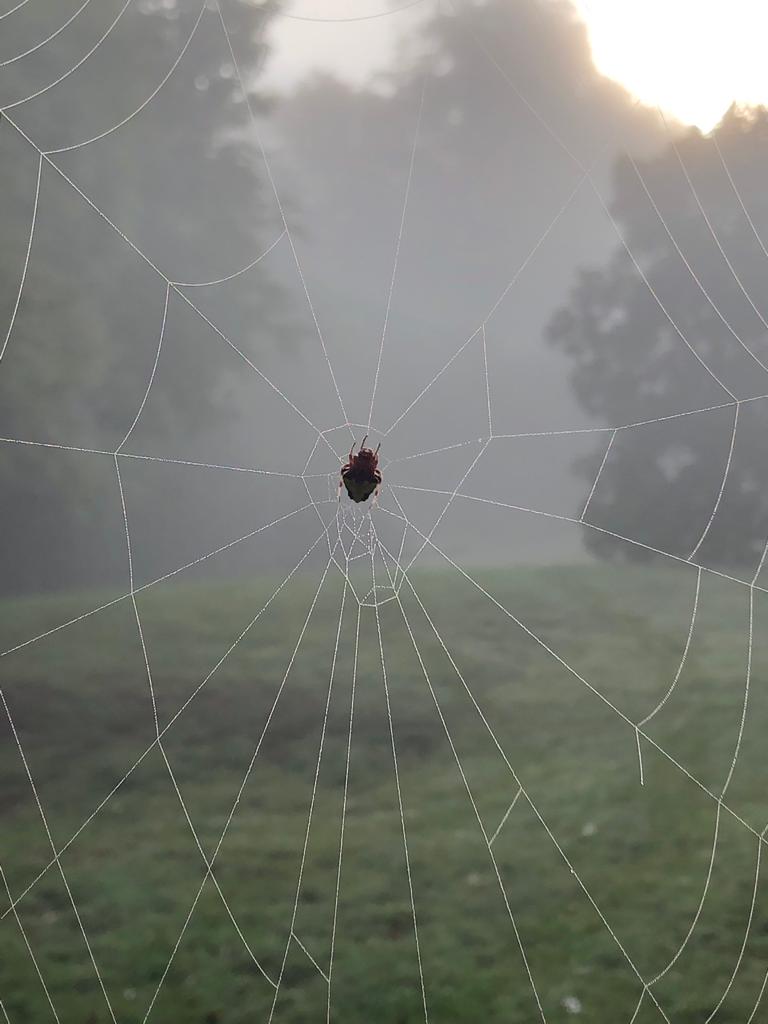Sometimes certain situations are more painful than others. This can result in one wound becoming more active than another at a specific time in our life, or even two wounds being activated at the same time. This doesn’t mean that the other wounds are healed. It is important here to remember that we feel our wounds more when they are activated by others, just as a physical wound is more painful when someone else touches it.
Lise Bourbeau
Many of us spend our whole lives running from feelings with the mistaken belief that you cannot bear the pain. But you have already borne the pain. What you have not done is feel all you are, beyond that pain.
Kahlil Gibran
The cave you fear to enter holds the treasures that you seek.
Joseph Campbell
Love is what we are born with. Fear is what we learn. The spiritual journey is the unlearning of fear and the acceptance of love back in our hearts.
Marianne Williamson
The more we suffer in specific situations or with a given person, the more deep rooted the problem, and the more momentous the consequences. This is especially true in the formative years of childhood when we have not yet developed competences and acquired resources to deal with challenges in a mature, conscious, and aware manner.
It is equally true in our closest familial and romantic relationships later in life, when all the unresolved issues bubble up to the surface once again. For the suffering to end, we need to discover and accept ourselves just as we are, with all our shortcomings and strengths.
The reactivation of the wound can be best described using the following analogy: If, upon meeting a person, we firmly shake hands, and one or both of us has a tender, open wound in our palm, the encounter will be painful.
The pain is not intentionally stimulated; it is a by-product of the encounter combined with a lack of awareness. It is not caused, per se, by the encounter; the cause lies in the fact that the already existing wound in the palm of the hand has not yet healed. Until it has, each new encounter will be painful.
The wounds are inflicted in early childhood because of us simply being ourselves in an innocent, unfiltered manner. In the first seven years of our life, by expressing our emotions and thoughts unfiltered, as they arise, we often cause consternation among our adult caregivers and those who are close to us. It is they who inflict these wounds upon us. They transmit their unfinished business to the next generation because they have not gotten around to transforming it.
We therefore quickly arrive at the assumption that being natural is not good, in some way not right. This discovery is the source of great pain which we often express through anger. These childhood outbursts are so common that they are generally considered normal. We call them childhood tantrums or teenage crises.
These fits of anger are perhaps considered normal human behaviour, but they are certainly not natural. Children who act naturally and are encouraged to be themselves, do not have fits like these. As you may have noticed, such natural children are few and far between.
In her book: `Heal your Wounds and Find your True Self´, the Canadian therapist Lise Bourbeau observes that most children go through four stages of development as follows: After having experienced the initial joy of being themselves, which is the first stage in their existence, they then experience the pain of not being allowed to be themselves, the second stage.
This is followed by the third stage, a period of rage and rebellion. The child will always look within for the cause of the problem; the prospect of the caregiver not being up to the task of parenting is simply too dangerous and fearful for the child to bear.
So, in the fourth stage, to alleviate the pain of not being themselves, we children create a new personality, a False Self, to become what we believe others want us to be.
During the third and fourth stages we create several masks, new facets of personality that we use to protect ourselves from the suffering endured during the second stage. Bourbeau postulates that there are five such masks which correspond to the five fundamental wounds inflicted on humans. Through clinical observation over almost forty years of therapy practice, she has concluded that all human suffering can be traced back to five primal wounds.
In the chronological order of their evolution in the development of the child, they are as follows: rejection, abandonment, humiliation, betrayal, and injustice.
Each time we suffer or cause suffering because of these wounds, our whole being feels violated. By ignoring the advice of the wise councillor, Polonius, in Shakespeare’s play, Hamlet, we ride roughshod over to the deepest needs of our true being:
`This above all: to thine own self be true,
And it must follow, as the night the day,
Thou canst not then be false to any man.´
Because our ego, with its false beliefs and fears, drives our reaction to childhood adversity, we create masks behind which to hide – from ourselves and from others – the wounds we have not yet resolved. These masks, their associated fears, and the wounds they are intended to hide are as follows:
1) The Withdrawer
Wound: Rejection
Mask: Withdrawal
Fear: Panic of being rejected
The child felt rejected and did not believe in his right to exist. Any compliments and attention received were exclusively the result of his conforming to his parent’s standards. As an adult, he wants to be perfect in order to feel loved. The slightest criticism of what he does calls into question his whole being. By withdrawing, he excludes and rejects himself.
2) The Dependent
Wound: Abandonment
Mask: Dependence
Fear: Loneliness
This child lacked nourishment, emotional warmth and was not supported in his expectations of life. The wound of abandonment develops inside oneself, in a passive way. It engenders a deep, indefinable sense of melancholy and hopelessness. As an adult, this child feels helpless, needing to be taken care of and pampered. The heavy burden of deep sadness often leads to weariness and burnout.
3) The Masochist
Wound: Humiliation
Mask: Masochism
Fear: Freedom
This child felt humiliated by her parents for taking sensual pleasure in life. Freedom is destroyed by a contemptuous and repressive attitude on the part of the caregivers, resulting in feelings of shame in the child. By taking care of others, she attempts to reduce this guilt while ensuring that she lacks time for herself, and therefore freedom, because she fears the boundlessness that freedom may entail.
4) The Controller
Wound: Betrayal
Mask: Control
Fear: Separation and denial
As a child, he suffered from not having his expectations fulfilled by his parents, leaving him feeling betrayed or manipulated. He loses confidence in life after witnessing lies or weakness among those who should have provided truth and strength. As an adult, he tends to believe himself indispensable and to think that others cannot succeed without him. He maintains his wound by his lack of trust in others.
5) The Rigid
Wound: Injustice
Fear: Coldness
Mask: Rigidity
As a child, she suffered from the lack of emotional availability and resulting coldness of her parents. She could not express herself in line with her deep sensitivity, so she ended up cutting herself off, emotionally and spiritually, from self and others. Sacrificing her individuality, she aspires to perfection. As an adult, she seeks to conform to the ideal she has set for herself or that she believes is expected of her, always showing a positive side but, through rigidity, not very capable of establishing healthy intimate relationships.
It is of utmost importance that we accept our wounds unconditionally. Lise Bourbeau argues that we have brought the wounds with us as `homework´ from previous incarnations. Regardless of this aspect, the wounds she describes resonate with my experience, so I will reflect upon the five wounds/masks, leaving that argument aside.
It’s also essential to accept the masks that we have created in order to protect us from those wounds. Loving and accepting a wound means acknowledging it and embracing it as ours. Others may have afflicted pain upon us in our formative years, but it is our reaction to the pain that has resulted in the masks we are now inclined to hide behind, especially when we come under stress.
We can then thank ourselves for having had the intelligence and courage to create and maintain the masks that contributed to our early survival. Today, however, like the life jacket we donned at the age of three – which did its job of preventing us from drowning, but which will constrict and suffocate us later in life – these masks now harm us more than they help.
The time has come to reevaluate our circumstances and risk deciding that we can now survive even when we feel hurt. No longer little children – with little or no understanding or resources – we can now, as adults, deal with the pain of our wounds.
With our accumulated experience, maturity, and mastery of resources we can now decide to learn to love ourselves.
Just as the creation of a wound goes through four phases (the joy of being ourselves, the pain we experience on discovering that we can’t be ourselves, the third stage of revolt and rebellion at having felt so much pain, and finally the resignation that spurs us to create a mask to try not to disappoint others and above all to shield us from the suffering that results from not being accepted as ourselves), the healing process will be complete when we manage to reverse the four stages beginning at the fourth, and returning to the first, where we become ourselves once more. We journey back from the False Self to the True Self.
The first stage in this process is to become aware of the mask or masks we wear.
We will have reached the second stage when we refuse to accept our responsibility, preferring to accuse others of our suffering. Remember that it’s normal for all human beings to resist, when we discover aspects of ourselves that we don’t like. People react differently during this stage. Some of us are more resistant than others. The intensity of our revolt will depend on our level of acceptance, the depth of our wound(s) at the time we become conscious of them, and our willingness to change, heal, and grow.
During the third stage we must grant ourselves the right to have suffered and to have resented one or both of our parents. If we can feel how deeply the inner child suffered, we will have more compassion for that inner child. This is where things get challenging. In my experience, it is not possible to transcend these wounds without feeling, once again, the pain that accompanied their original infliction.
As we all have a well-meaning and intelligent `pain avoidance´ impulse, this must be consciously relinquished, if the process is to succeed. The more compassion we can develop, for self, others, and circumstances, the more profound and prolific this stage will be.
It is during this stage that we can let go of what we felt towards our parents or adult caregivers by feeling compassion for their suffering as well. Finally, in the fourth stage we become our True Self once more. We stop believing that we still need to wear our masks for protection. We accept that life is full of experiences that are there to help us learn, heal, and grow.
This is called loving yourself. Since love has great healing and energizing powers, we should be prepared for transformation in many areas of our lives; illnesses may disappear, or our physical bodies may change, new opportunities arise, and relationships blossom, transformed for the better.
Love has nothing to do with what we do or possess. Loving ourselves means allowing ourselves to be as we are in the moment, accepting ourselves even when we do to others what we reproach them for doing to us. Real love is the experience of being ourselves.
Loving ourselves is therefore accepting that we will sometimes hurt others unintentionally by rejecting, abandoning, humiliating, betraying, and being unjust to them. This is the first and most important step towards healing our wounds while we engage in a life-long practice which will enable us to cause less harm as we progress.
The parallels between Bourbeau’s ideas and the basic concepts of the Positive Intelligence (PQ) Mental Fitness Programme are quite striking. In PQ, the masks are called Saboteurs. PQ also points out the necessity of honouring the Saboteurs for how they came about in the first place. We do this while deciding to `turn down their volume’ such that they may no longer hijack us, mentally, emotionally, or behaviourally. The state to which we shift, when we intercept and transcend the Saboteurs, is referred to as `Sage´.
We enhance the Sage Powers of Empathize, Explore, Innovate, Navigate, and Activate, such that our True Self can begin to lead the dance with our Saboteurs, the False Self. The ability to shift from Saboteur to Sage is facilitated by the Mind Command muscle. This muscle is trained by means of regular daily exercise which draw upon the bodily senses and imagination. Their purpose, in short, is to enable us to spend more and more of each day in the present moment, in the energy of Sage, or our True Self.
The `Sage Perspective´ is the attitude that every circumstance – indeed this incarnation – can be turned into a gift and opportunity. In my opinion, the ideas espoused by Ms Bourbeau are very helpful in this regard.










